#indigenous latine american
Text
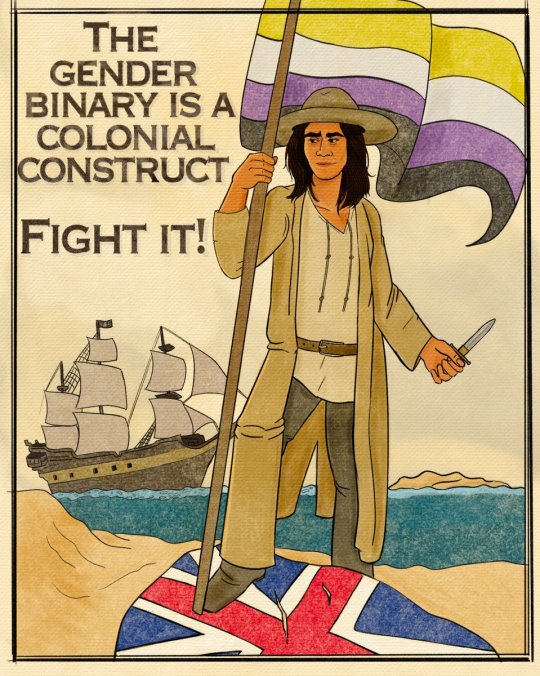
The anti-colonial power of Jim! What a gift to have a non-binary Latine rebel.
#ofmd#our flag means death#jim jimenez#jim#no for real#it speaks volumes a latine person#those decended from indigenous americans#gets to rebel against the colonial gender binary#vico i adore you#Jim my beloved#my art
2K notes
·
View notes
Text
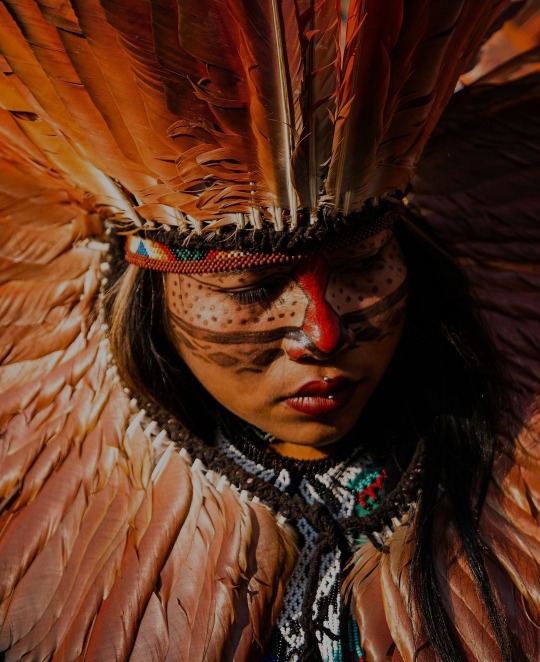
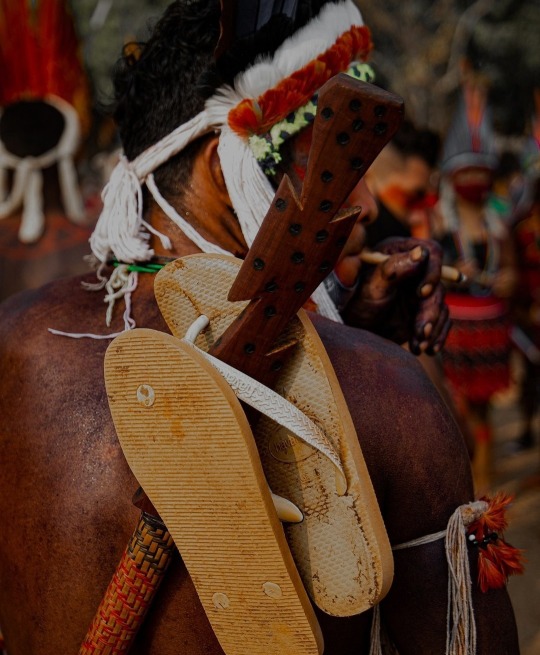
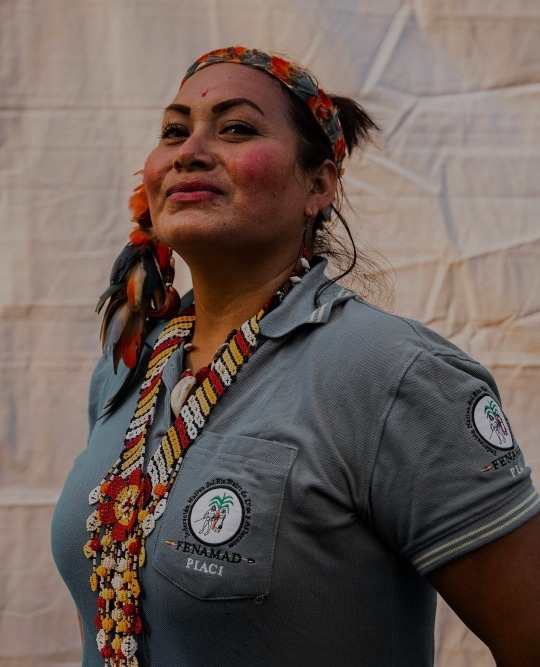

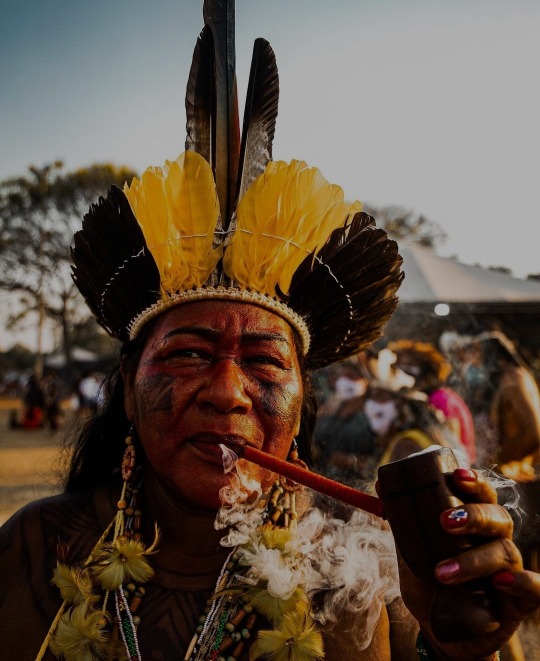
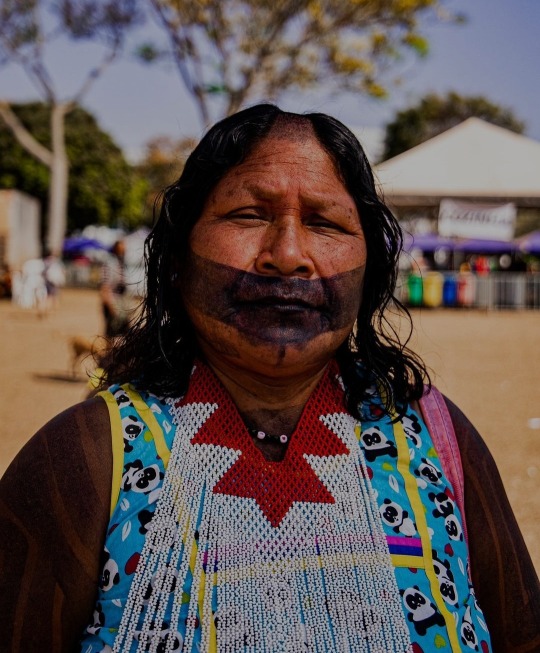


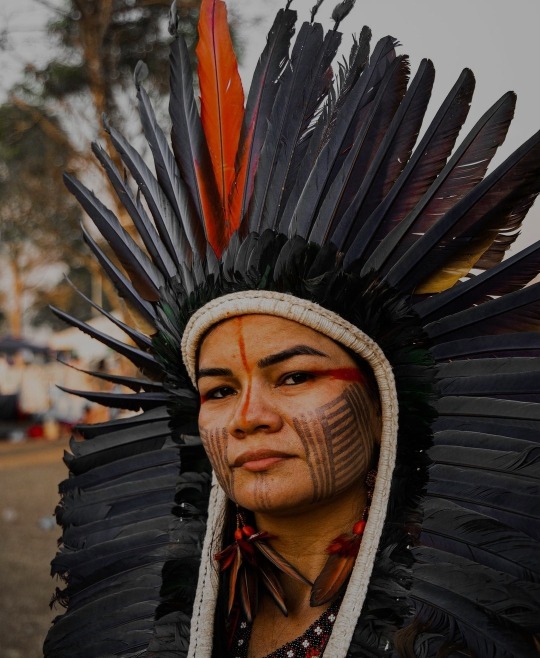

Marcha das Mulheres Indígenas, Brasília, 2021 🏹
#brasil#brazil#photography#women#indigenous issues#indigenous women#indigenous rights#indigenous people#indigenous#native women#native american#first nations#latin america#america latina#latinoamerica#meus posts
8K notes
·
View notes
Text
25 YA Books for Indigenous Peoples Day

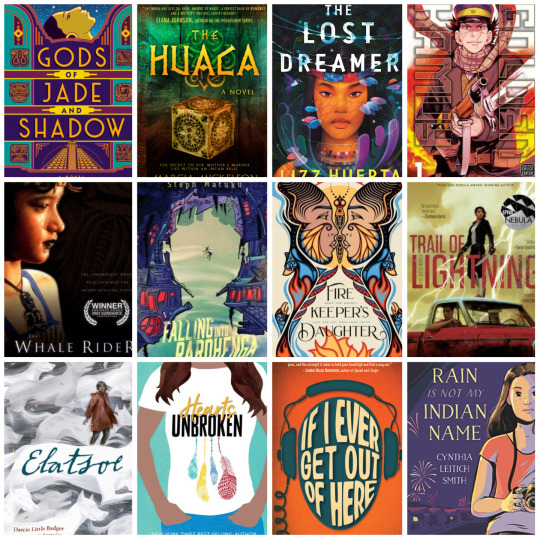
NOTES: For brevity and diversity, I did not include all the North American Native books I found, but there are plenty more - feel free to post your favorites in the comments! Most books are from indigenous authors, but not all - do your own research if you like. Not all books may be “technically” YA. I’d love to hear more suggestions of Latin American indigenous stories or Hawai’ian native stories which were difficult to find.
EDIT: This is just a random list by a random tumblr blog from 2022 - get out there and find your own books or list some in the comments if you find this list lacking.
Australia
The Things She's Seen by Amebelin & Ezekiel Kwaymullina
The Boy from the Mish by Gary Lonesborough
Becoming Kirrali Lewis by Jane Harrison
Swallow the Air by Tara June Winch
Canada
The Missing by Melanie Florence
Sorrow's Knot by Erin Bow
Son of a Trickster by Eden Robinson
The Marrow Thieves by Cherie Dimaline
A Girl Called Echo by Katherena Vermette
Surviving the City by Tasha Spillett
Japan - Ainu
Golden Kamuy by Satoru Noda
Latin America
Saints of the Household by Ari Tison
Tree Girl by Ben Mikaelsen
The Huaca by Marcia Argueta Mickelson
Gods of Jade and Shadow by Silvia Moreno-Garcia
The Lost Dreamer by Lizz Huerta
New Zealand - Maori
The Whale Rider, Witi Ihimaera
Falling into Rarohenga by Steph Matuku
United States
Firekeeper's Daughter by Angeline Boulley
Trail of Lighting by Rebecca Roanhorse
Elatsoe by Darcie Little Badger
The Absolutely True Diary of a Part-Time Indian by Sherman Alexie
If I Ever Get Out of Here by Eric Gansworth
Hearts Unbroken by Cynthia Leitich Smith
Rain is Not My Indian Name by Cynthia Leitich Smith
#indigenous peoples day#indigenous#book list#fuck columbus#native american#first nations#diverse ya#diversity in media#diverse books#aboriginal#maori#latin america#north america#south america#australia#canada#japan#new zealand#united states
2K notes
·
View notes
Text

Half Indian/Half Mexican, James Luna, 1991
#photography#vintage photography#vintage#black and white photography#james luna#1990s#1991#portrait#mexican#latin american art#american indians#indigenous art#indigenous#puyukitchum#kumeyaay
42 notes
·
View notes
Text
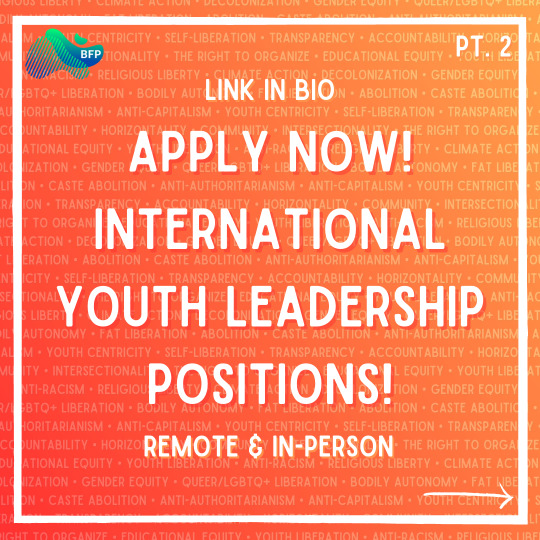
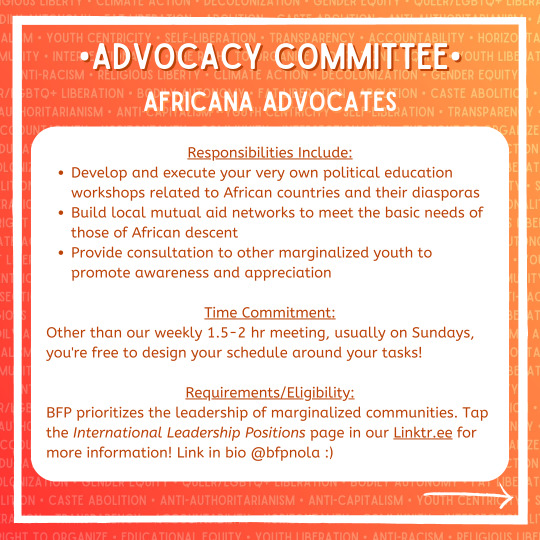
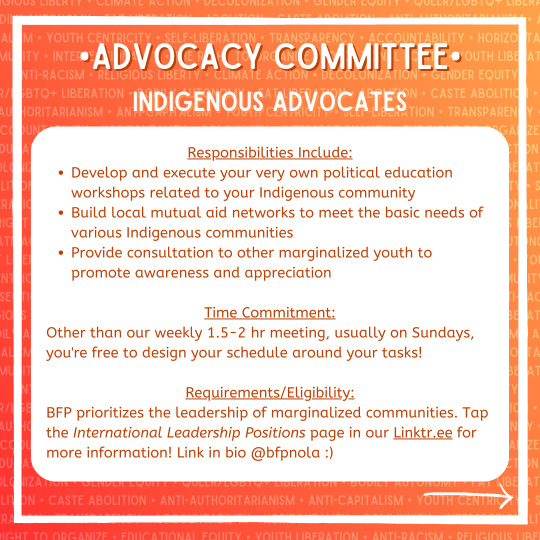
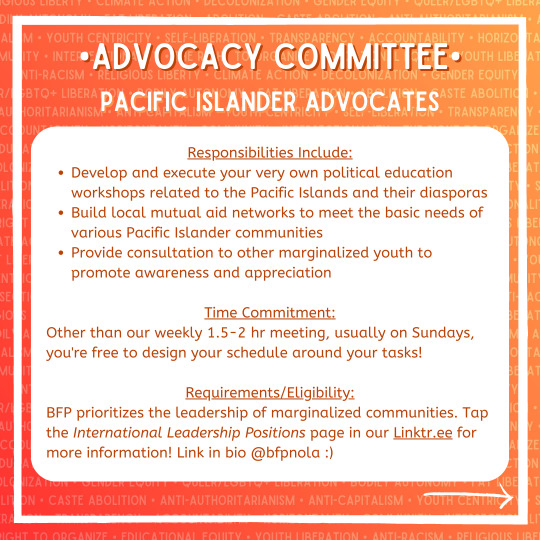


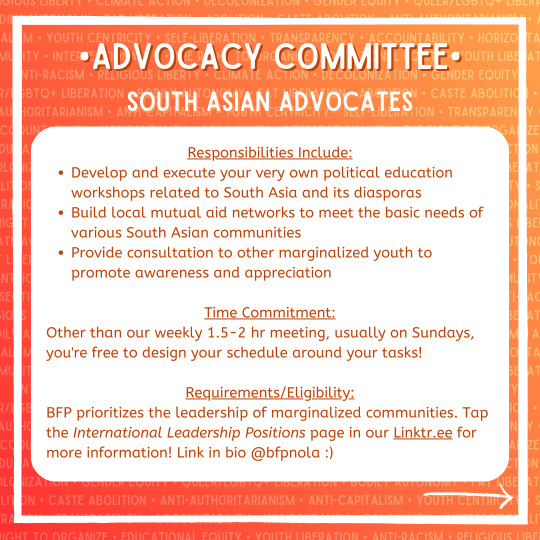
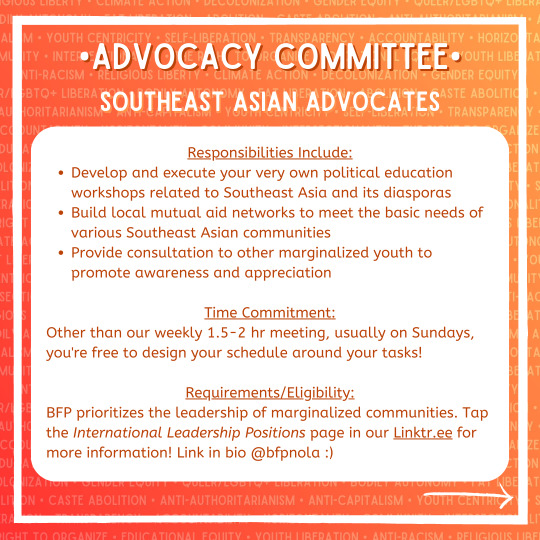

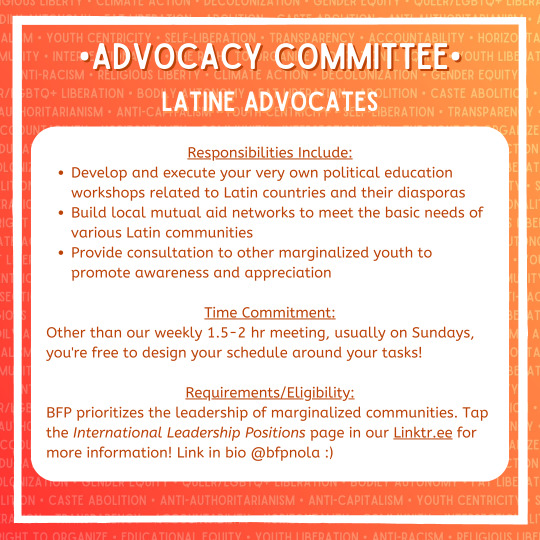
Hey! We're back with part 2! Better Future Program (@bfpnola) is officially looking for youth volunteers between the ages of 14 and 25 for our Advocacy Committee. Don't see a role that fits your identity or beliefs? Don't worry! We've got SO MANY opportunities, we had to split them up across multiple posts! Feel free to check our Linktr.ee for more positions or our "Apply Now!" highlight on Instagram in the coming weeks!
And if you don’t know who we are? Welcome! BFP is Black-, queer-, and woman-owned nonprofit, entirely run by youth! Since 2016, we’ve been accepting volunteers not just from Bulbancha (so-called New Orleans, Louisiana), but WORLDWIDE! Our mission is to globally expand peer-led political education, support, and imagination for marginalized youth!
To fulfill this goal, we offer over 3,000 free resources through our Liberation Library, design and execute mutual aid-based projects, and offer the safe space young activists need to ask questions and grow. If this sounds like something you’d be interested in, check out our International Youth Leadership Positions page in our bio!
Image description below.
[ID: All slides share the same background. There is a repeating list of BFP’s guiding principles and core beliefs in translucent, all-white, capitalized letters. BFP’s guiding principles include youth-centricity, self-liberation, transparency, accountability, horizontality, community, and intersectionality. BFP’s core beliefs include the right to organize, educational equity, youth liberation, anti-racism, religious liberty, disability justice, climate action, decolonization, gender equity, queer/LGBTQ+ liberation, bodily autonomy, fat liberation, abolition, caste abolition, anti-authoritarianism, and anti-capitalism. A burnt orange to amber gradient overlays this list. A bold, white square frames the image with a white arrow pointing right in the bottom right corner.
Slide 1 reads: “LINK IN BIO. APPLY NOW! INTERNATIONAL YOUTH LEADERSHIP POSITIONS! REMOTE & IN-PERSON.” There is a BFP logo in the lefthand corner and the words “Part Two” in the righthand corner, as this is the first of multiple posts showcasing open leadership positions.
Slide 2 reads: "Advocacy Committee: Africana Advocates
Responsibilities Include:
Develop and execute your very own political education workshops related to African countries and their diasporas
Build local mutual aid networks to meet the basic needs of those of African descent
Provide consultation to other marginalized youth to promote awareness and appreciation
Time Commitment:
Other than our weekly 1.5-2 hr meeting, usually on Sundays, you're free to design your schedule around your tasks!
Requirements/Eligibility:
BFP prioritizes the leadership of marginalized communities. Tap the International Leadership Positions page in our Linktr.ee for more information! Link in bio @bfpnola :)"
Slide 3 reads: "Advocacy Committee: Indigenous Advocates
Responsibilities Include:
Develop and execute your very own political education workshops related to your Indigenous community
Build local mutual aid networks to meet the basic needs of various Indigenous communities
Provide consultation to other marginalized youth to promote awareness and appreciation
Time Commitment:
Other than our weekly 1.5-2 hr meeting, usually on Sundays, you're free to design your schedule around your tasks!
Requirements/Eligibility:
BFP prioritizes the leadership of marginalized communities. Tap the International Leadership Positions page in our Linktr.ee for more information! Link in bio @bfpnola :)"
Slide 4 reads: "Advocacy Committee: Pacific Islander Advocates
Responsibilities Include:
Develop and execute your very own political education workshops related to the Pacific Islands and their diasporas
Build local mutual aid networks to meet the basic needs of various Pacific Islander communities
Provide consultation to other marginalized youth to promote awareness and appreciation
Time Commitment:
Other than our weekly 1.5-2 hr meeting, usually on Sundays, you're free to design your schedule around your tasks!
Requirements/Eligibility:
BFP prioritizes the leadership of marginalized communities. Tap the International Leadership Positions page in our Linktr.ee for more information! Link in bio @bfpnola :)"
Slide 5 reads: "Advocacy Committee: Central Asian Advocates
Responsibilities Include:
Develop and execute your very own political education workshops related to Central Asia and its diasporas
Build local mutual aid networks to meet the basic needs of various Central Asian communities
Provide consultation to other marginalized youth to promote awareness and appreciation
Time Commitment:
Other than our weekly 1.5-2 hr meeting, usually on Sundays, you're free to design your schedule around your tasks!
Requirements/Eligibility:
BFP prioritizes the leadership of marginalized communities. Tap the International Leadership Positions page in our Linktr.ee for more information! Link in bio @bfpnola :)"
Slide 6 reads: "Advocacy Committee: East Asian Advocates
Responsibilities Include:
Develop and execute your very own political education workshops related to East Asia and its diasporas
Build local mutual aid networks to meet the basic needs of various East Asian communities
Provide consultation to other marginalized youth to promote awareness and appreciation
Time Commitment:
Other than our weekly 1.5-2 hr meeting, usually on Sundays, you're free to design your schedule around your tasks!
Requirements/Eligibility:
BFP prioritizes the leadership of marginalized communities. Tap the International Leadership Positions page in our Linktr.ee for more information! Link in bio @bfpnola :)"
Slide 7 reads: "Advocacy Committee: South Asian Advocates
Responsibilities Include:
Develop and execute your very own political education workshops related to South Asia and its diasporas
Build local mutual aid networks to meet the basic needs of various South Asian communities
Provide consultation to other marginalized youth to promote awareness and appreciation
Time Commitment:
Other than our weekly 1.5-2 hr meeting, usually on Sundays, you're free to design your schedule around your tasks!
Requirements/Eligibility:
BFP prioritizes the leadership of marginalized communities. Tap the International Leadership Positions page in our Linktr.ee for more information! Link in bio @bfpnola :)"
Slide 8 reads: "Advocacy Committee: Southeast Asian Advocates
Responsibilities Include:
Develop and execute your very own political education workshops related to Southeast Asia and its diasporas
Build local mutual aid networks to meet the basic needs of various Southeast Asian communities
Provide consultation to other marginalized youth to promote awareness and appreciation
Time Commitment:
Other than our weekly 1.5-2 hr meeting, usually on Sundays, you're free to design your schedule around your tasks!
Requirements/Eligibility:
BFP prioritizes the leadership of marginalized communities. Tap the International Leadership Positions page in our Linktr.ee for more information! Link in bio @bfpnola :)"
Slide 9 reads: "Advocacy Committee: West Asian Advocates
Responsibilities Include:
Develop and execute your very own political education workshops related to West Asia and its diasporas
Build local mutual aid networks to meet the basic needs of various West Asian communities
Provide consultation to other marginalized youth to promote awareness and appreciation
Time Commitment:
Other than our weekly 1.5-2 hr meeting, usually on Sundays, you're free to design your schedule around your tasks!
Requirements/Eligibility:
BFP prioritizes the leadership of marginalized communities. Tap the International Leadership Positions page in our Linktr.ee for more information! Link in bio @bfpnola :)"
Slide 10 reads: "Advocacy Committee: Latine Advocates
Responsibilities Include:
Develop and execute your very own political education workshops related to Latin countries and their diasporas
Build local mutual aid networks to meet the basic needs of various Latin communities
Provide consultation to other marginalized youth to promote awareness and appreciation
Time Commitment:
Other than our weekly 1.5-2 hr meeting, usually on Sundays, you're free to design your schedule around your tasks!
Requirements/Eligibility:
BFP prioritizes the leadership of marginalized communities. Tap the International Leadership Positions page in our Linktr.ee for more information! Link in bio @bfpnola :)"
/End ID.]
#reaux speaks#hiring#volunteer#youth activism#african#african diaspora#african american#black power#indigenous#aboriginal#first nations#native american#pacific islander#central asia#west asia#south asia#southeast asia#east asia#latine#latinx#chicano#advocacy#youth#high school#middle school#university#remote#in person#hybrid#abolition
76 notes
·
View notes
Text
i want to make a sewing piece with flowers from different liberation movements — e.g. lavender for queers, poppy for Palestine...
anyone have information on flowers linked to other movements / cultures? For instance, Black liberation or Latin American / Indigenous liberation?
#rn i'm thinking of doing a rose for Indigenous America because they#are native to here + are meaningful to various cultures#+ they make me think of Latin American liberation theology bc of their association with our lady of guadalupe#and the flower of a black-eyed pea for Black liberation because enslaved Africans were able to bring those plants with them#to the americas and nourish themselves with that memory of home#could also do sunflowers as an important staple crop to many Native American cultures (“the fourth sister”)#plus apparently sunflowers were used in some feminist movements? but i'll have to look into which ones Just In Case#averygaypost
25 notes
·
View notes
Photo

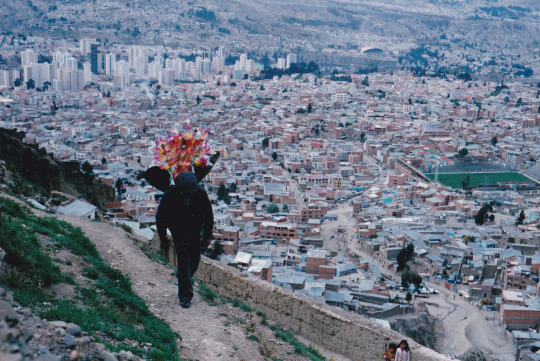
The Secret Nation (La Nación Clandestina) | Jorge Sanjinés | 1989 | Bolivia
#la nación clandestina#aymara#jorge sanjinés#bolivian films#native american movies#cinema#film#bolivia#movies#auteurs#film d'auteur#indigenous movies#bolivian#80s cinema#the secret nation#1989#latin american cinema#latin american films
127 notes
·
View notes
Text

Karen Vega 🌸🌸🌸 : Oaxacan Model
#Karen Vega#indigenous Oaxacan#Oaxaqueña#Indigenous mexican#Mexican indigenous#latine indigenous#brown is beautiful#BIPOC#WOC#models of color#xicana#india mexicana#ndn tumblr#feminine women#pretty women#beautiful women#poc#soft posts#Indigenous model#latin american indigenous#american indigenous#beauty#full lips#brown eyes#long hair#native american#oaxacan native#brown women#brown models#brown skinned
435 notes
·
View notes
Text
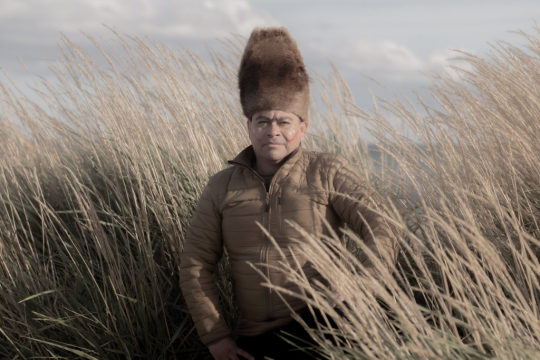
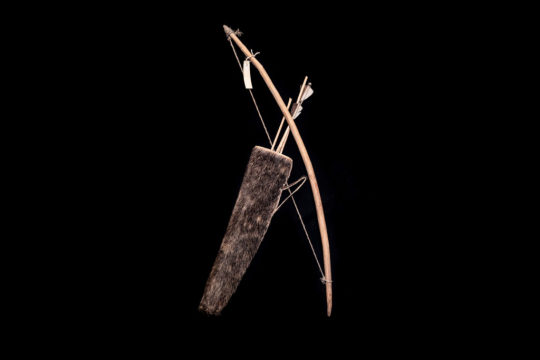


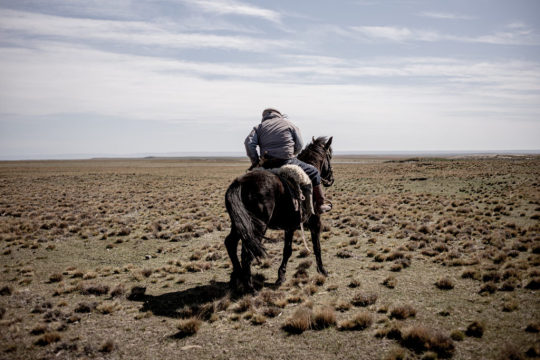
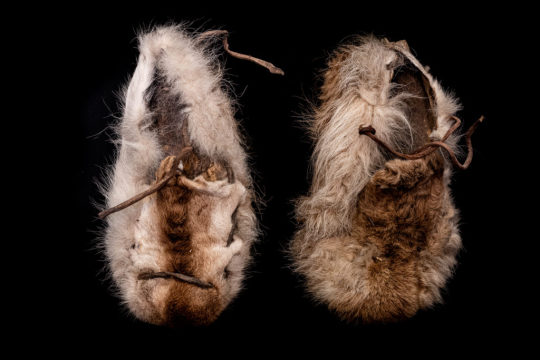



The Selk'nam's quest for recognition in Chile by Marcio Pimenta and Nina Radovic Fanta
"About 500 years ago, the Portuguese explorer Hernando de Magellan discovered a maritime passage in the extreme south of the planet, a region unknown to Europeans at the time, a place they would come to call "Tierra Australis Incognita." The discovery, in effect, was the first globalization of modern society. The sea passage itself was named the Strait of Magellan. In the 19th century, other Europeans and their descendants would arrive, this time to stay. Men who had already domesticated plants and animals and who upon arriving in what is now called Tierra del Fuego found hunter-gatherers who had lived there for more than 10,000 years. That indigenous group would become to known as Selk'nam. The encounter between hunter-gatherers and the colonizer farmers led to a defacto death penalty for the Selk'nam. A tragedy that is still the order of the day. Considered extinct in the history books and laws written by the victors, yet the survivors claim to be alive. And now they fight for recognition.
In Chile, a century has passed, and a dictatorship, without the Selk'nam genocide being addressed. This began to change only recently, in the 2010s, thanks to the Internet, when web users searching for their origins could now find each other. Now, together, the Selk'nam face the process of decolonizing and denaturalizing the historical perspective, of recovering and rethinking what happened to them. They have created community centers where family experiences, stories and memories are shared and the truth is confronted. The Selk'nam are organized in entities such as Corporación Selk'nam and Comunidad Covadonga-Ona, both in Chile, and Comunidad Rafaela Ishton, in Argentina, to fight for their rights, starting with the recognition that they still exist, that they are not yet extinct. It is a living people. Comunidad Rafaela Ishton has existed since the 1980s and was one of the first to obtain legal jurisdiction in Argentina. In 1994, the Selk'nam were recognized as an indigenous people by the Argentine state. More than 600 families, in total about 1000 people, identify themselves as Selk'nam in that country. Hema’ny Molina, president of the Corporation Selk’nam Chile, and Miguel Pantoja, member of the Community of Rafaela Ishton, do not accept to be seen as “descendants” of the Selk’nam. “I am not a descendant, I am Selk’nam,” says Pantoja. “I have to explain myself and think about myself– it’s something violent,” he continues. Molina, in agreement, adds: “I always knew that I was Selk’nam but that does not mean to live as such or understand how to do it. There are various, complex layers. For many years there was a feeling of loneliness as we were unaware of the existence of other families. It was a feeling of emptiness and complete solitude. Who am I going to talk to? Who am I going to tell? Will people believe me?”
In Chile, Corporación Selk'nam won legal jurisdiction in 2015. The organization has more than 50 members and their families, in total, number about 200 people. According to the 2017 Chilean census, 1,144 people identified themselves as Selk'nam. Still, the Chilean state does not recognize the existence of the Selk'nam as a people. The Corporation Selk'nam fights for the inclusion of the Selk'nam in the list of "main ethnic groups" recognized by the Indigenous Law No. 19,253, of 1993.
They have the help of researchers from two Chilean universities: Universidad Católica Silva Henríquez and the Universidad de Magallanes. Alejandro Nú��ez Guerrero, director of the Centro Universatario of the Universidad de Magallanes in Porvenir, Chile, has been forging agreements to carry out more field research. Among their findings so far, it was recently discovered that the first settlers' ranch on Tierra del Fuego was built on the Chilean side and not on the Argentine side, as previously believed, and that the Selk'nam are actually more numerous on the island. All of this are fundamental facts in the recognition process.
For their part, Héctor Vásquez Chogue, former vice-president of the Covadonga Ona community, and his brother, José Luis Vásquez Chogue, secretary of the Selk'nam Corporation, have been on a personal quest for more than thirty years. The recent journey of self-discovery as Selk'nam has also turned into a tour of endless meetings with Chilean politicians to incorporate the Selk'nam into the Indigenous Law. The main objective is to make them known as living Selk'nam, as a modern and integrated people, unlike what is currently taught. "It is difficult to say who I am, because the State does not recognize us," says José.
The Selk'nam hope to receive official recognition in early 2022, the deadline which the Chilean state has given the community to prove they are alive."
28 notes
·
View notes
Text
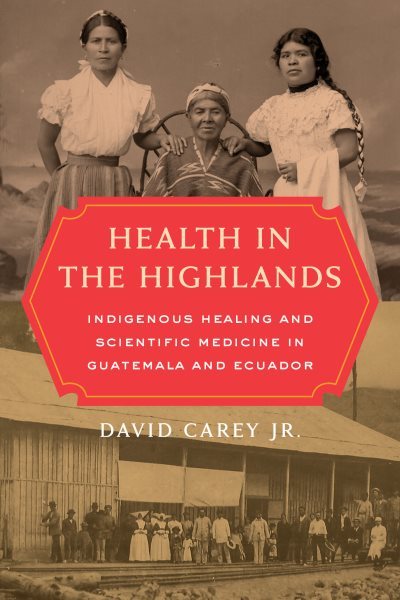
"Through the lens of health and healing, this book presents a welcome and long overdue comparison of the place of highland Indigenous people in the policies and imaginaries of Guatemala and Ecuador. While both countries have demographically significant Indigenous populations, Carey teases out important divergences in policies and practices towards these groups that illuminate other significant spheres of public life. Sensitive to the silences in the archival record, and foregrounding both Indigenous and biomedical practitioners, this analysis will be of interest to scholars and students concerned with encounters between healing systems, racialization, citizenship and state formation, and the history of health, illness and medicine broadly defined."
#uwlibraries#history books#latin american history#history of medicine#indigenous history#history of guatemala#history of ecuador
12 notes
·
View notes
Text

Antonio Pichilla Quiacain. Kukulkan, 2020.
handmade textile
12 notes
·
View notes
Text
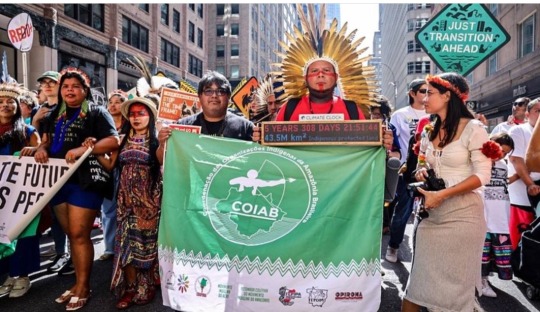
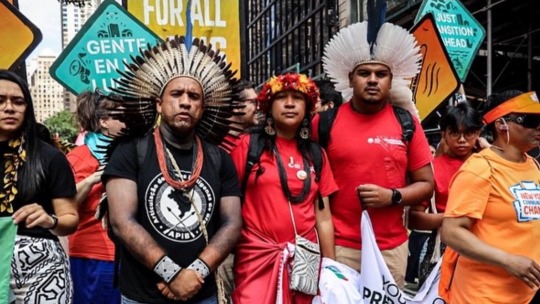
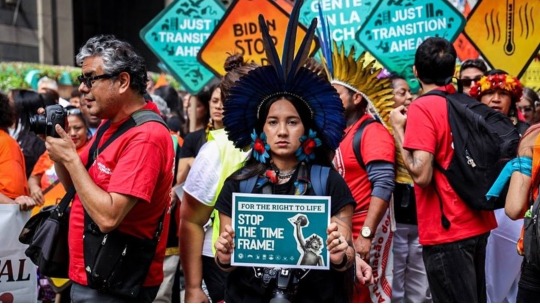
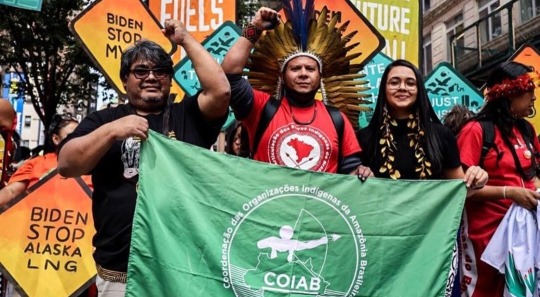
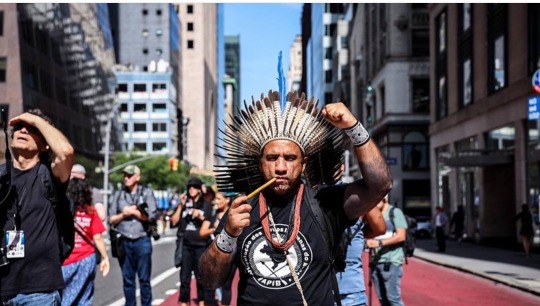
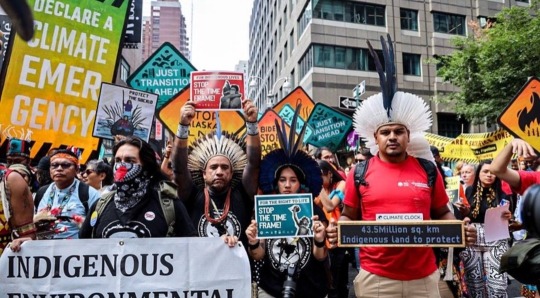
"Trial scheduled for September 20th at the Supreme Federal Court may determine the future of Indigenous Lands in Brazilian territory and be crucial for the global climate. The indigenous movement is mobilizing across Brazil, and an indigenous delegation from Apib is in New York during Climate Week to strengthen the international mobilization campaign in defense of Indigenous Lands rights."
"We are on the land, and the land is within us. If the land dies, we as indigenous peoples die."
The Articulação dos Povos Indígenas do Brasil (Articulation of Indigenous Peoples of Brazil — APIB) is calling for nationwide mobilizations this week and participating in the New York Climate Week to alert the world to the risks of the Supreme Federal Court (STF) judgment scheduled for September 20th. The court will vote on the legitimacy of the legal concept known as the "Temporal Framework," advocated by the Brazilian agribusiness, which could reevaluate Indigenous Land demarcations and impact global climate crisis mitigation efforts.
The Temporal Framework suggests that only indigenous people who can prove they were living on the land in 1988, the same year the Federal Constitution was created, should have rights to the land. This disregards the forced displacements of hundreds of indigenous groups who could only reclaim their traditional lands after Brazil's redemocratization in the late 1980s.
This week, the 15th edition of Climate Week is taking place in New York from September 17th to 24th, alongside the 78th Session of the United Nations General Assembly from September 19th to 23rd, which will feature a speech by President Lula during its opening. A delegation of 10 indigenous leaders is in New York to participate in Climate Week's activities. The international mobilization's goal is to emphasize to the world that the Temporal Framework is a threat to the lives of Brazil's indigenous peoples and could exacerbate the climate crisis, as Indigenous Lands serve as a reservoir of life on the planet.
Apib and its regional organizations are reinforcing mobilizations in territories, cities, and Brasília against the Temporal Framework on September 20th. The goal is to monitor the trial and strengthen the next steps of the indigenous movement's fight. The organizations within Apib mobilized over 220 protests in 21 states, including the Federal District, between May and June.
Five Supreme Federal Court (STF) justices are yet to vote in the trial. The current tally stands at four votes against the Temporal Framework thesis and two in favor. Justices Edson Fachin, Alexandre de Moraes, Cristiano Zanin, and Luís Roberto Barroso have expressed opposition to the agribusiness-backed thesis, while the only favorable votes came from justices appointed by former President Jair Bolsonaro, André Mendonça, and Nunes Marques.
On the same day as the STF vote, the Brazilian Senate attempts to put the Temporal Framework into law. The ruralist caucus in Congress seeks to create tension with the Brazilian judiciary since there is a possibility that the STF may invalidate the Temporal Framework thesis.
In addition to the Temporal Framework, Bill 2903 proposes other setbacks to the rights of indigenous peoples, such as the construction of highways and hydroelectric plants in indigenous territories without free, prior, and informed consent from affected communities. The proposal also aims to allow farmers to enter production contracts with indigenous people, violating the rights of indigenous peoples to the exclusive use of demarcated territories.
While some falsely claim that "there is too much land for too few indigenous people in Brazil," Apib counters that there is too much land for too few farmers and that agribusiness promotes the illegal invasion of indigenous lands. The entity asserts,
"There is no solution to the climate crisis without guaranteeing the rights of indigenous peoples and the demarcation of their territories."
Currently, nearly half of Brazil's land is in the hands of rural producers. Of the total land in the country, 41% corresponds to rural properties, 13.7% to indigenous lands, and 45.2% to other purposes, according to data published in the Official Gazette of the Union. Indigenous Lands are a guarantee of life for indigenous peoples and for all of humanity, which depends on the climate's future.
"As worsening climate crisis unfolds, many will be marked in history as accomplices to the new colonialism threatening the survival of us, indigenous peoples who inhabit the vast territory known as Brazil, and the future of all humanity because there is no solution to the climate crisis without the involvement of indigenous peoples," emphasizes Dinamam Tuxá.
Key activities of Apib during the 15th edition of Climate Week from September 17th to 24th:
On September 17th, Apib participated in the Climate Week march through the streets of New York in support of the Fight Fossil Fuel Strike. The indigenous delegation from Apib denounced the threat posed by the Temporal Framework thesis, highlighted the indigenous emergency situation concerning extractive industries and agribusiness that lead to multiple instances of violence in our territories. Additionally, as part of the Climate Week agenda, it's worth noting that Apib's executive coordinators Kleber Karipuna, Dinamam Tuxá, and other members of the indigenous delegation will participate in a talk on September 19th titled "FCLP: Rights, Participation, and Benefits for Indigenous Peoples and Local Communities in Forest Climate Financing," organized by the Forest and Climate Leaders Partnership. On September 22nd, a portion of the delegation will be present at a dialogue co-organized with H.E Razan Al Mubarak, the current president of the International Union for Conservation of Nature, to assess progress in the COP28 agenda with the aim of collectively identifying meaningful and respectful ways for Indigenous Peoples to engage in the COP.
About APIB
The Articulation of Indigenous Peoples of Brazil (Apib) is a nationally recognized entity within the indigenous movement in Brazil, created from the grassroots up. It brings together seven regional indigenous organizations (Apoinme, ArpinSudeste, ArpinSul, Aty Guasu, Conselho Terena, Coaib, and Comissão Guarani Yvyrupa) and was founded with the purpose of strengthening the unity of our peoples, fostering coordination among different regions and indigenous organizations across the country, as well as mobilizing indigenous peoples and organizations against threats and infringements on indigenous rights.
Support/donate to APIB
APIB Instagram page
APIB Website
#yara.txt#brasil#brazil#latin america#america latina#south america#brazilian politics#brazilian indigenous people#indigenous people#indigenous#native american#native women#first nations#ndn#ndn tag#ndn tumblr#latinoamerica#environmentalism#climate crisis#climate emergency#nature#naturism#naturist#anti capitalism#capitalism#anti colonialism#anti colonization#colonialism#colonization#neocolonialism
182 notes
·
View notes
Text
**sighs…** Okay this definitely is too complicated for me to simplify or even explain properly, but there’s a current theme around how first-world countries always villainize people and governments from the Global South. Over the years, due to the proliferation of this mindset in the media, it's become very cruel and mainstream: the dichotomy between the “civilized” against the “savages” has always been present; yet now, that times have changed and POC issues are more present and discussed, this division is brought back by the use of “weaponized progressivism”. In short, countries that colonized, enslaved, stole, and dehumanized indigenous people of Latin America turn around and point an accusatory finger toward countries with huge ethnic gaps and prejudiced-based policies for not fixing the racist problem they installed in the first place. Most of these countries are still coming to terms with their stolen/downgraded indigenous identity and heritage as they were built upon the idea that this cultural identification of them is inherently negative against the “purity of white identity" that they should aspire to espouse.
Now, first-world people even deny the latinoamerican status of countries they perceive as “mostly white populated”, not only denying the historical background and baggage these lands possess but also reproducing the exact same racist rhetoric they claim to be against: "most indigenous tribes no longer exist, and POC aren’t part of the population."
These communities are very present (and in need of reparations) inside their own country and some aspects of their culture are integrated into the immigrant-based culture that some spaces of these countries have; people who claim that they don’t exist are simply giving tools to the governments that want to exterminate them and say they harmed no one as these communities “no longer live”.
Hell, this speech is completely dangerous as its main objective is to alienate Latin American countries and turn them against each other to prevent their union (it isn’t a coincidence that these arguments always resurface whenever new policies or trading agreements are designed). Racism inside Latin American countries needs to be discussed as does the revindication of indigenous cultures and people; yet first-world countries (government and, sorry, people alike) need to stay out of this mess and hand over their platforms to actual POC Latinos to speak on these matters; otherwise, they’re doing their (still racist and white supremacist) governments a favor by contributing to Latino-America’s lack of union.
#politics#latin american countries#first world countries#civilization vs barbarism#racism#poc#people of color#indigenous people#colonialism#weaponized progressivism#Latin America#Global South#latinx#indigenous culture#chile#brasil#venezuela#argentina#peru#bolivia#colombia#mexico#cuba#paraguay#uruguay#puerto rico#panama#ecuador#suriname#guyana
31 notes
·
View notes
Text
Guys, check out this kickstarter for Koboa, a South American inspired high fantasy setting for DnD 5e, PF2 and CFR! Its trilingual (English, Spanish and Portuguese versions) and made by writers, artists and game-designers from several different countries in South America, including native indigenous creators! The art is incredibly beautiful, and the setting seems fun to play in. Please support them, there's 13 days to go!
#tabletop rpgs#dnd#dungeons and dragons#dnd setting#kickstarter#koboa#diverse setting#south american coded dnd fantasy setting#latine inspired setting for high fantasy#native indigenous fantasy setting#yes yes yes#i know they already met their goal but the more the get the more they'll be able to improve the final product#and maybe more adventures and expansions later#or even just help with hiring more artists and designers
20 notes
·
View notes
Text

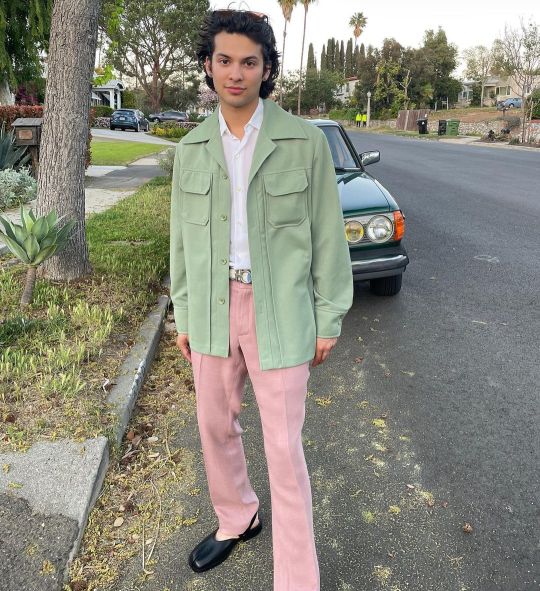
indigenous fc’s you could consider playing #37
xolo maridueña
he/him (male)
mexica, chumash, tongva, patayan, serrano, tataviam, mexican, ecuadorian, cuban
21
@ xolo_mariduena
#rpt#rph#indigenous fc#native fc#native american fc#mexica fc#chumash fc#tongva fc#patayan fc#serrano fc#tataviam fc#latinx fc#latine fc#fcoc#fc of color#poc fc#fc rec
38 notes
·
View notes
Text
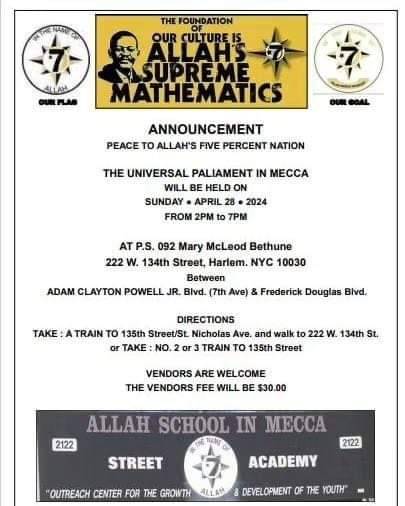
#nation of gods and earths#supreme mathematics#five percent nation#allah school in mecca#hip hop#5% nation of gods and earths#father allah#Allah The Father#black men#black people#black women#cipher#new york#nyc#brooklyn new york#underground hip hop#rappers#podcast#poverty#community#latin america#latinos#indigenous#native americans
6 notes
·
View notes